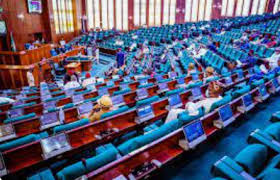The House of Representatives has strongly condemned a bill proposed by United States lawmakers seeking to hold Nigerian officials accountable for allegedly “facilitating the mass murder of Christians.”
During plenary on Wednesday, the lower chamber adopted a resolution rejecting the allegations, insisting that there is no state-sponsored persecution of Christians in Nigeria. The motion was sponsored by Deputy Speaker Benjamin Kalu and co-sponsored by 359 lawmakers.
The bill, titled the Nigeria Religious Freedom Accountability Act of 2025, was introduced by U.S. Senator Ted Cruz. It calls for targeted sanctions against Nigerian government officials accused of enforcing Sharia and blasphemy laws, urges the U.S. Secretary of State to designate Nigeria as a “country of particular concern,” and recommends maintaining Boko Haram and ISIS-West Africa on the list of entities of particular concern.
The proposed legislation follows recurring international claims that Nigerian Christians face systematic persecution—claims the Nigerian government has repeatedly denied.
Moving the motion, Kalu noted that while the U.S. Commission on International Religious Freedom (USCIRF) recently recommended Nigeria for designation as a country of concern, such claims do not reflect reality. “Nigeria’s constitution guarantees freedom of thought, conscience, and religion,” he said, emphasizing that “successive administrations, security agencies, faith leaders, and civil society groups have continued to protect all worshippers and prosecute offenders.”
He further argued that insecurity in Nigeria stems from complex and multidimensional challenges — including insurgency, banditry, farmer-herder conflicts, separatist violence, and communal disputes — which affect citizens of all faiths. Kalu warned that “external legislative actions based on incomplete or decontextualised assessments risk undermining Nigeria’s sovereignty, misrepresenting facts, straining strategic relations, and unintentionally emboldening violent actors.”
Contributing to the debate, Majority Leader Julius Ihonvbere cautioned that the U.S. bill, which has already passed its second reading in the Senate, could harm Nigeria’s reputation and require significant diplomatic effort to reverse. “Nigerians are facing economic, social, and security challenges, not religious persecution,” he said, describing the move as a “deliberate attempt to undermine Nigeria’s democratic progress.”
Oluwole Oke, Chair of the House Committee on Foreign Affairs, criticised the U.S. Senate for excluding Nigerian officials and diplomats from the bill’s public hearing, describing it as “a deliberate attempt to damage Nigeria’s image.” Similarly, Billy Osawaru (Edo) described the move as “global politics,” lamenting that Nigeria currently lacks an ambassador to the United States who could have engaged directly with American lawmakers.
Following extensive debate, the House rejected narratives portraying Nigeria’s security crisis as a religious conflict or as evidence of state-backed persecution. It reaffirmed the country’s commitment to constitutional guarantees of freedom of religion and belief.
The chamber directed the Ministry of Foreign Affairs and the Nigerian Embassy in Washington, D.C., to lodge a formal complaint at the United Nations and to seek a joint Nigeria–U.S. fact-finding and dialogue mission.
The Committee on Legislative Compliance was mandated to ensure full implementation of the resolution and to report back within 28 days.




